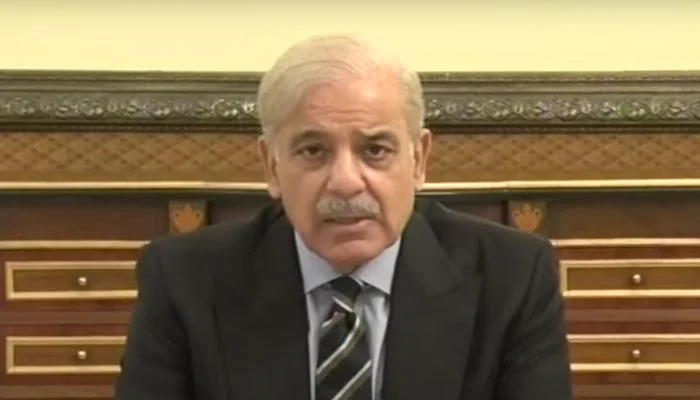ISLAMABAD, Sep 24 (ABC): Prime Minister Muhammad Shehbaz Sharif on Saturday has reiterated the call for galvanizing of the global efforts to save the future generations from the worsening climatic-induced consequences that led to flood-devastation in Pakistan.
In an interview with ‘The Associated Press’ (AP), the prime minister said that he came to the United Nations to tell the world that “tomorrow, this tragedy can fall on some other country.”
The prime minister urged the world leaders gathered for their annual meeting at the General Assembly to stand together and raise resources “to build resilient infrastructure, to build adaptation, so that our future generations are saved.”
He said the initial estimate of losses to Pakistan’s economy as a result of the three-month flooding disaster was $30 billion, adding that he had requested UN Secretary-General Antonio Guterres to urgently hold a donors’ conference.
The prime minister further said that the impact of climatic change on Pakistan was immense. More than 1,600 people had died, including hundreds of children. Crops on 4 million acres have been washed away. Millions of houses have been damaged or completely destroyed and life savings had disappeared in the devastating floods triggered by monsoon rains, AP quoted the prime minister as saying.
“Thousands of kilometers of roads have been smashed, washed away, railway bridges, railway track, communications, underpasses, transport. All this requires funds,” the prime minister said, reiterating that they needed funds to provide livelihood to their people.
He said Pakistan was responsible for less than one percent of the carbon emissions that cause global warming. “We are a victim of something we have nothing to do with,” he added.
To a question, he said even before the floods began in mid-June, Pakistan was facing serious challenges from grain shortages and skyrocketing crude oil prices sparked mainly by Russian-Ukraine conflict.
The skyrocketing prices had put the import of oil beyond their capacity and with the damage and destruction from the massive flooding, solutions have become ‘extremely difficult,’ he added.
The prime minister said Pakistan had a very robust, transparent mechanism already in place to ensure that all aid items were delivered to people in need. In addition, he said, “I will ensure third-party audit of every penny through international well-reputed companies.”
He further informed that he met top officials from the International Monetary Fund and World Bank and appealed for a moratorium on loan repayments and deferment of other conditions until the flood situation improves.
“They sounded very supportive,” he said, stressing that a delay “can spell huge consequences”, both for the economy and for the Pakistani people.
He said that Pakistan might have to import about a million tons of wheat because of the destruction of farmland. The country also needed fertilizer because factories involved in their production were closed, he added.
About ties with India, the prime minister reiterated that India has to understand that unless and until the burning issue of Kashmir was resolved through peaceful talks … ‘we will not be able to live in peace.’
About Afghanistan, the prime minister said Taliban had “a golden opportunity to ensure peace and progress” for the people by adhering to the Doha Agreement.
He also stressed that Afghan assets should be unfrozen.
The prime minister also highlighted that Pakistan desired “good, warm relations” with the US.
“What the previous government did, in this behalf, was most uncalled for, was detrimental to Pakistan’s sovereign interests,” he said, adding it was definitely not in line with what ordinary Pakistanis would believe and expect.

